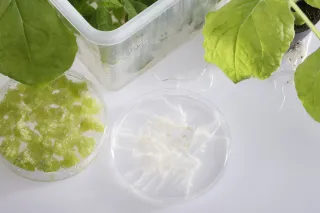Synthetic biology
Synthetic biology enables intelligent and efficient biotechnological production, which is a significant enabler of sustainable development.
Synthetic biology is set to revolutionise biotechnology and replace some of the current production methods in the future. It can be used for producing durable materials, chemicals, pharmaceuticals and fuels. We can manufacture complex chemical compounds, smart materials and biological sensors. In a circular economy, we can utilise waste streams as food for microbes and use cell factories to deliver desired products to bioreactors.
Focuses
Bioinspired production
We offer unique expertise in synthetic biology tools and bioprocess design to develop commercially viable production processes. We study synthetic biology tools, modelling and materials design, biosynthetic materials and chemicals, protein production platform development and bioprocess design.

